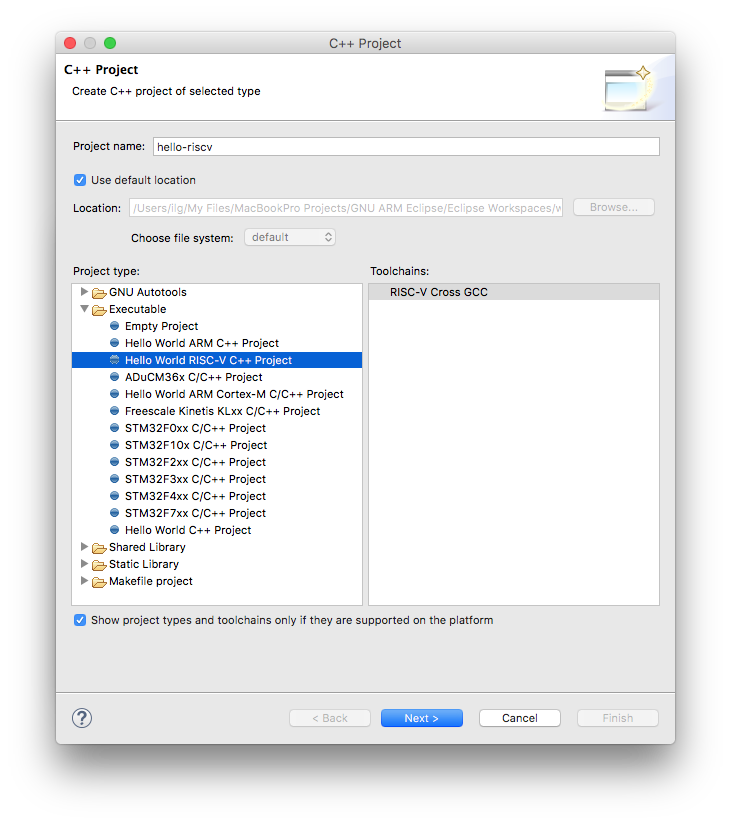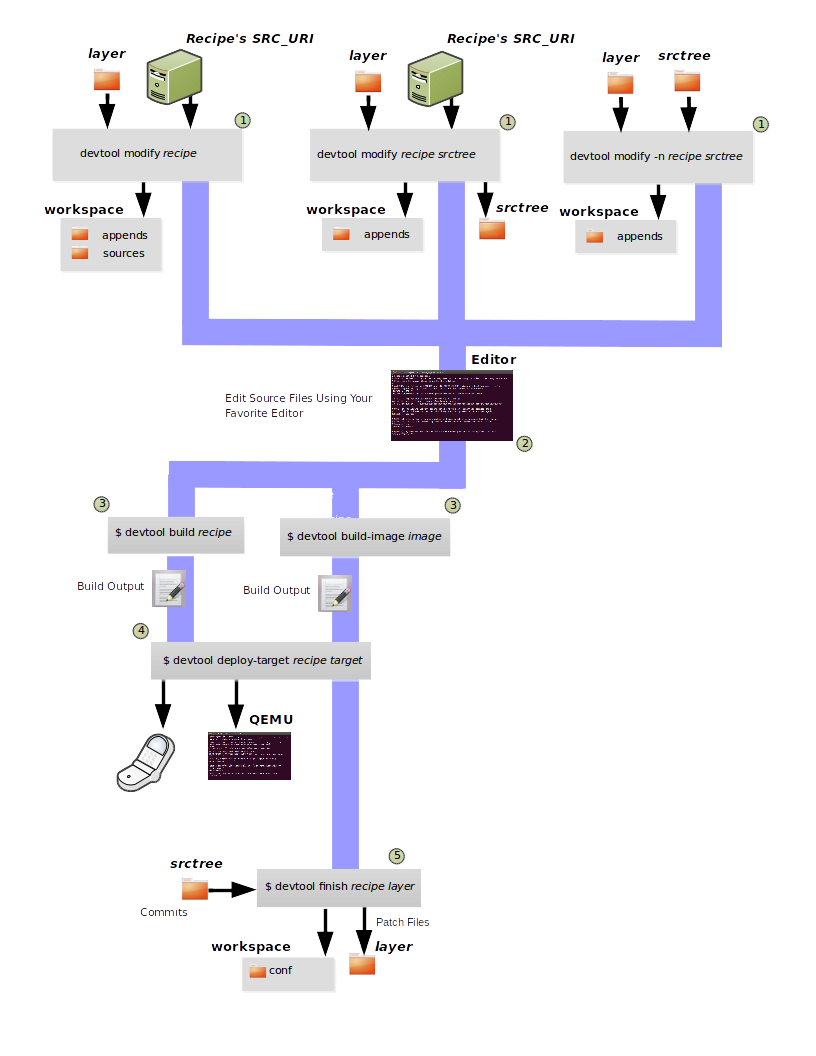Qemu-devel Gcc Detection Fix For Mac
. gcc on macOS says it's version 4.2.1, but it's really clang, and it's actually the same clang as the system clang. It also doesn't respond with a full path when called with -print-file-name=libstdc.dylib, which is expected from gcc in abi.py. Instead, it gives a relative path and gcccompilercompare doesn't understand what to do with it. This results in errors like: lib/spack/spack/abi.py, line 71, in gccgetlibstdcxxversion libpath = os.readlink(output.strip) OSError: Errno 2 No such file or directory: 'libstdc.dylib'. This commit does two things:.
Ignore any gcc that's actually clang in abi.py. We can probably do better than this, but it's not clear there is a need to, since we should handle the compiler as clang, not gcc. Don't auto-detect any 'gcc' that is actually clang anymore. Ignore it and expect people to use clang (which is the default macOS compiler anyway). Note that this means we won't see gcc@4.2.1 by default on Mac OS X anymore. Only the corresponding clang.
I think it was confusing anyway, and users can still add fake gccs to their compilers.yaml if they want, but I think we should discourage it. Gcc on macOS says it's version 4.2.1, but it's really clang, and it's actually the.same. clang as the system clang.
It also doesn't respond with a full path when called with -print-file-name=libstdc.dylib, which is expected from gcc in abi.py. Instead, it gives a relative path and gcccompilercompare doesn't understand what to do with it. This results in errors like: ``` lib/spack/spack/abi.py, line 71, in gccgetlibstdcxxversion libpath = os.readlink(output.strip) OSError: Errno 2 No such file or directory: 'libstdc.dylib' ``` - This commit does two things: 1. Ignore any gcc that's actually clang in abi.py. We can probably do better than this, but it's not clear there is a need to, since we should handle the compiler as clang, not gcc.
Don't auto-detect any 'gcc' that is actually clang anymore. Ignore it and expect people to use clang (which is the default macOS compiler anyway).
Users can still add fake gccs to their compilers.yaml if they want, but it's discouraged. Gcc on macOS says it's version 4.2.1, but it's really clang, and it's actually the.same. clang as the system clang. It also doesn't respond with a full path when called with -print-file-name=libstdc.dylib, which is expected from gcc in abi.py. Instead, it gives a relative path and gcccompilercompare doesn't understand what to do with it. This results in errors like: ``` lib/spack/spack/abi.py, line 71, in gccgetlibstdcxxversion libpath = os.readlink(output.strip) OSError: Errno 2 No such file or directory: 'libstdc.dylib' ``` - This commit does two things: 1.
Ignore any gcc that's actually clang in abi.py. We can probably do better than this, but it's not clear there is a need to, since we should handle the compiler as clang, not gcc. Don't auto-detect any 'gcc' that is actually clang anymore. Ignore it and expect people to use clang (which is the default macOS compiler anyway). Users can still add fake gccs to their compilers.yaml if they want, but it's discouraged. Gcc on macOS says it's version 4.2.1, but it's really clang, and it's actually the.same.
clang as the system clang. It also doesn't respond with a full path when called with -print-file-name=libstdc.dylib, which is expected from gcc in abi.py. Instead, it gives a relative path and gcccompilercompare doesn't understand what to do with it. This results in errors like: ``` lib/spack/spack/abi.py, line 71, in gccgetlibstdcxxversion libpath = os.readlink(output.strip) OSError: Errno 2 No such file or directory: 'libstdc.dylib' ``` - This commit does two things: 1.
Ignore any gcc that's actually clang in abi.py. We can probably do better than this, but it's not clear there is a need to, since we should handle the compiler as clang, not gcc.
Don't auto-detect any 'gcc' that is actually clang anymore. Ignore it and expect people to use clang (which is the default macOS compiler anyway).
Users can still add fake gccs to their compilers.yaml if they want, but it's discouraged. Gcc on macOS says it's version 4.2.1, but it's really clang, and it's actually the.same. clang as the system clang. It also doesn't respond with a full path when called with -print-file-name=libstdc.dylib, which is expected from gcc in abi.py.
Instead, it gives a relative path and gcccompilercompare doesn't understand what to do with it. This results in errors like: ``` lib/spack/spack/abi.py, line 71, in gccgetlibstdcxxversion libpath = os.readlink(output.strip) OSError: Errno 2 No such file or directory: 'libstdc.dylib' ``` - This commit does two things: 1. Ignore any gcc that's actually clang in abi.py.
We can probably do better than this, but it's not clear there is a need to, since we should handle the compiler as clang, not gcc. Don't auto-detect any 'gcc' that is actually clang anymore. Ignore it and expect people to use clang (which is the default macOS compiler anyway). Users can still add fake gccs to their compilers.yaml if they want, but it's discouraged. Gcc on macOS says it's version 4.2.1, but it's really clang, and it's actually the.same. clang as the system clang.
It also doesn't respond with a full path when called with -print-file-name=libstdc.dylib, which is expected from gcc in abi.py. Instead, it gives a relative path and gcccompilercompare doesn't understand what to do with it. This results in errors like: ``` lib/spack/spack/abi.py, line 71, in gccgetlibstdcxxversion libpath = os.readlink(output.strip) OSError: Errno 2 No such file or directory: 'libstdc.dylib' ``` - This commit does two things: 1. Ignore any gcc that's actually clang in abi.py. We can probably do better than this, but it's not clear there is a need to, since we should handle the compiler as clang, not gcc.
Don't auto-detect any 'gcc' that is actually clang anymore. Ignore it and expect people to use clang (which is the default macOS compiler anyway). Users can still add fake gccs to their compilers.yaml if they want, but it's discouraged. Add this suggestion to a batch that can be applied as a single commit.
This suggestion is invalid because no changes were made to the code. Suggestions cannot be applied while the pull request is closed.
Suggestions cannot be applied while viewing a subset of changes. Only one suggestion per line can be applied in a batch.
Add this suggestion to a batch that can be applied as a single commit. Applying suggestions on deleted lines is not supported. You must change the existing code in this line in order to create a valid suggestion. Outdated suggestions cannot be applied.
This suggestion has been applied or marked resolved. Suggestions cannot be applied from pending reviews.
Contents. Install Developer Tools If they didn't come bundled with Mac OS X, get the Xcode Tools (or Developer Tools for older Mac OS X) from or from your install disk. This will install Apple versions of:. (GNU Compilers). (GNU Debugger). (GNU Make) Apple regularly pulls all older links in order to promote newer Mac OS X, but all the old developer tools can be downloaded from ADC at You need a (free) developer registration with Apple first, in order to log in there. For Mac OS X 10.4, you want (at least) Xcode 2.2, since earlier versions were buggy.


Check Autotools versions Depending on your OS version, you might need to download and compile new versions of these:. (GNU Autoconf). (GNU Automake).

(GNU Libtool) Check what you have, with -version (note that GNU libtool is called 'glibtool' on Mac OS X) Currently Code::Blocks requires versions:. autoconf 2.50+. automake 1.7+ (1.9+ needed in order to build the dist tarball).
Qemu-devel Gcc Detection Fix For Mac
libtool 1.4+ (1.5.8+ highly recommended to get some bug fixes) Automake example For Mac OS X 10.4, you will only need an upgraded (local) installation of automake 1.9.x. You can download ' and configure and install it with something like:./configure -prefix=/usr/local -program-suffix=-1.9 make sudo make install sudo cp -pi /usr/share/aclocal/libtool.m4 /usr/local/share/aclocal-1.9/ Since it's now known as 'automake-1.9', it won't interfere with the regular 'automake' If you would rather have the new version to be called when calling 'automake', let it install into /usr/local and put /usr/local/bin before /usr/bin in your PATH. Libtool example Download source. The following instructions will overwrite your current version of libtool with the one you just downloaded. Cd /libtool-././configure -prefix=/usr -program-prefix=g make sudo make install Note that this will replace the system version of glibtool, which might have some compatibility issues with building other software.
FYI: Universal Binaries If you are building for Mac OS X 10.4 or later, you might want to build ' These are binaries that contain code for both PowerPC ('ppc' arch) and Intel ('i386' arch) The basic flags that needs to be added are: CFLAGS += '-isysroot /Developer/SDKs/MacOSX10.4u.sdk -arch i386 -arch ppc' CXXFLAGS += '-isysroot /Developer/SDKs/MacOSX10.4u.sdk -arch i386 -arch ppc' (You only need the sysroot parameter on PowerPC Macintosh, not on a Intel Macintosh) The '-arch i386 -arch ppc' is what tells the compiler to build a 'universal' (or 'fat') binary. Usually it's easiest to build one version for 'powerpc-apple-darwin8', and one version for 'i686-apple-darwin8', and then merge them with './configure -host=powerpc-apple-darwin8 -target=powerpc-apple-darwin8./configure -host=i686-apple-darwin8 -target=i686-apple-darwin8 Some caveats:. pre-compiled headers might fail with a 'no main' error.
If they do, add a -c to only compile them. when cross-compiling, tools like autorevision might fail to build. Copy these from a native build.
the Tiger compilers might crash from time to time, but that is only to be expected (it seems). See: Building Universal Binaries from 'configure'-based Open Source Projects FYI: Compilers When building for older versions of the SDK, you want to make sure to use the same compiler. CC = gcc-4.0 CXX = g-4.0 Mac OS X 10.6 has GCC 4.2 as the default compiler, which won't work for the Mac OS X 10.4 SDK. FYI: ANSI or UNICODE For the moment we are using 'ANSI' (-disable-unicode, default) for Mac OS X 10.3 and earlier, and 'UNICODE' (-enable-unicode, optional) for Mac OS X 10.4 and later. See FYI: 32-bit or 64-bit Code::Blocks currently uses wxMac (wxOSX/Carbon), which is 32-bit only. So it's not possible to build for 'x8664'. When Code::Blocks (and requirements) has been updated to use wxOSX/Cocoa, then a 64-bit version might be built too.
Best train simulator for mac. Train Simulator 2016 offers engines of different types such as Steam, Diesel and Electric, natural controls, Career, Standard, Free Roam and Quick Drive Modes, various departure and destination stations, Day and Night cycles, various Seasons and Weather types, Passengers and Cargo to deliver, etc. Train Simulator offers various new features embedded into the gameplay that previously were necessary to download separately to play the game. The new features include “Revamped Graphics, Bug Fixes, Modifications in already existing content, and multiple trade options, etc. Train Simulator offers fantastic and scenic routes from many real-world locations and takes you to the lush green mountains of Sherman Hill (USA) to West Rhine: Cologne to Koblenz (Germany) and from Riviera Line: Exeter to Kingswear (UK) etc.
Build wxWidgets Download the source code Download the tarball for the wxMac release: Apply necessary patches Don't forget to apply any released patches!